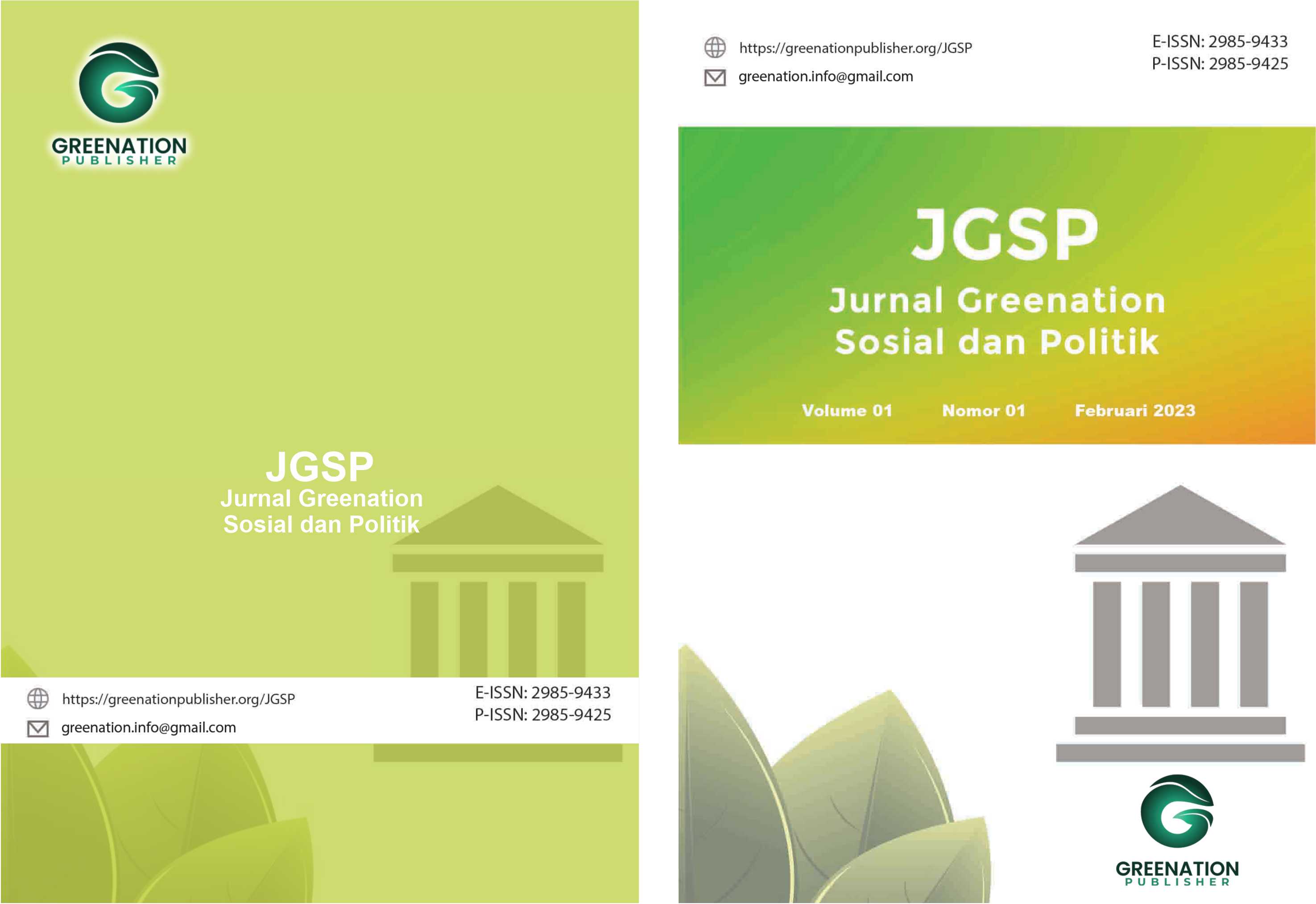Legal Protection for Creditors as Holders of Fiduciary Rights Against Unlawful Transfer of Motor Vehicles by Debtors in Financing Agreements
DOI:
https://doi.org/10.38035/jgsp.v3i3.428Keywords:
legal protection, fiduciary, transfer of motor vehicles, unlawful acts, creditorsAbstract
Motor vehicle financing agreements with fiduciary guarantees are a common practice in consumer financing in Indonesia. In practice, debtors often transfer the fiduciary object, such as a motor vehicle, to a third party without the written consent of the creditor, which is contrary to the provisions of Article 23(2) of Law No. 42 of 1999 on Fiduciary Security. Such actions not only violate the agreed-upon agreement but also constitute unlawful acts and may even be classified as criminal embezzlement as stipulated in Article 36 of the Fiduciary Law and Article 372 of the Criminal Code. This study aims to analyze the forms of unlawful transfers, the legal consequences for the debtor, and the legal protections available to the creditor as the holder of the fiduciary right. The methodological approach used is a normative legal analysis, with primary and secondary legal sources including legislation, doctrine, and court rulings. The analysis indicates that legal protection is available both preventively through fiduciary registration and contract clauses, and repressively through civil lawsuits and criminal reports. However, the implementation of legal protection still faces obstacles, including weak law enforcement, low legal literacy among the public, and the suboptimal role of law enforcement officials. Therefore, efforts are needed to enhance the effectiveness of legal protection through regulatory updates and legal education for the public to prevent further violations of fiduciary collateral.
References
Ali, A. A. (2022). KEPASTIAN HUKUM PENERAPAN ASAS KEBEBASAN BERKONTRAK DALAM SEBUAH PERJANJIAN BAKU DITINJAU BERDASARKAN PASAL 1338 KITAB UNDANG-UNDANG HUKUM PERDATA. SENTRI: Jurnal Riset Ilmiah, 1(2), 270-278.
Daming, S. &. (2021). Tinjauan Filsafat Hukum Terhadap Keberadaan Jaminan Fidusia Dalam Perjanjian Leasing Kepemilikan Kendaraan Bermotor. YUSTISI, 8(2), 131-151.
Dharma, Y. A. (2024). Analisis Yuridis Peralihan Jaminan Fidusia Kepada Pihak Ketiga Tanpa Sepengetahuan Kreditur. Jurisprudensi: Jurnal Ilmu Syariah, Perundang-Undangan Dan Ekonomi Islam, 16(2), 364-377.
Gunawan, M. R. (2022). Prosedur Eksekusi Objek Jaminan Fidusia Dalam Perjanjian Kredit Kendaraan Bermotor. Notarius, 15(1), 296-309.
Hamka, H. (2023). Pemidanaan Pengalihan Objek Jaminan Fidusia Tanpa Persetujuan Penerima Fidusia. Philosophia Law Review, 3(1), 1-13.
Husen, R. A. (2023). Pertanggungjawaban Debitur Terhadap Kreditur Pada Perjanjian Kredit Dengan Jaminan Fidusia. PATTIMURA Law Study Review, 1(1), 102-110.
Karmila, K. &. (2022). Tinjauan Hukum Terhadap Tanggung Jawab Debitur Kepada Kreditur Dalam Perjanjian Kredit Dengan Jaminan Fidusia. Lakidende Law Review, 1(2), 147-160.
Lubis, M. A. (2023). Perlindungan Hukum Terhadap Kreditur Sebagai Pemegang Hak Jaminan Dalam Perkara Debitur Wanprestasi. Jurnal Interpretasi Hukum, 4(2), 337-343.
Lumbanraja, E. D. (2023). Eksekusi Benda Jaminan Fidusia: Analisis Konseptual Dalam Undang-Undang Jaminan Fidusia. Diponegoro Private Law Review, 8(2), 132-150.
Maitsaa’Jaudah, T. (2024). Problematika Pendaftaran Jaminan Fidusia melalui Sistem AHU Online. Borobudur Law and Society Journal, 3(4), 180-188.
Nasokha, S. H. (2024). EKSEKUSI JAMINAN FIDUSIA AKIBAT DEBITUR WANPRESTASI. Jakarta: Damera Press.
Pasaribu, Y. M. (2022). Penerapan Pendaftaran Jaminan Fidusia Secara Elektronik Oleh Kreditur Ditinjau Dari Peraturan Menteri Hukum Dan Ham Nomor 9 Tahun 2013. Legalitas: Jurnal Hukum, 14(1), 87-93.
Rahmania, D. H. (2025). Hak dan Kewajiban Dalam Jaminan Hipotik: Kajian Dalam Asas Proporsionalitas Dalam Perjanjian Kredit. Socius: Jurnal Penelitian Ilmu-Ilmu Sosial, 2(10), 107-115.
Sazali, R. F. (2024). MEWUJUDKAN KEPASTIAN HUKUM YANG BERKEADILAN DALAM PELAKSANAAN EKSEKUSI JAMINAN FIDUSIA. Journal of Innovation Research and Knowledge, 4(3), 1625-1652.
Shania, I. S. (2022). Akibat Hukum Debitor yang Menyewakan objek Jaminan fidusia Tanpa Persetujuan tertulis Kreditor. DIVERSI: Jurnal Hukum, 8(1), 55-77.
Suryoutomo, M. S. (2025). Tanggung Jawab Perdata dalam Kasus Wanprestasi dan Perbuatan Melawan Hukum. Jurnal Kolaboratif Sains, 8(4).
Ufathi, N. A. (2021). Pendaftaran Akta Jaminan Fidusia Secara Online. Al Qodiri: Jurnal Pendidikan, Sosial dan Keagamaan, 18(3), 622-631.
Wahyu, A. A. (2024). Aspek Kepastian Hukum dalam Perjanjian Jaminan Fidusia. Binamulia Hukum, 13(2), 429-445.
Wilianita, A. R. (2024). Akibat Hukum Jaminan Fidusia Yang Tidak Didaftarkan Secara Elektronik (Online) Dihubungkan Dengan Undang-Undang Nomor 42 Tahun 1999 Tentang Jaminan Fidusia. Jurnal Ilmu Hukum, Humaniora dan Politik (JIHHP), 4(6).
Yulia, R. (2024). TINJAUAN YURIDIS PERKEMBANGAN HUKUM JAMINAN DI INDONESIA. JUDAKUM: JURNAL DEDIKASI HUKUM, 3(3), 119-128.
Downloads
Published
How to Cite
Issue
Section
License
Copyright (c) 2025 Daniel P Simangunsong, Joko Setiono, Albertus Wahyu Rudhanto

This work is licensed under a Creative Commons Attribution 4.0 International License.
Hak cipta :
Penulis yang mempublikasikan manuskripnya di jurnal ini menyetujui ketentuan berikut:
- Hak cipta pada setiap artikel adalah milik penulis.
- Penulis mengakui bahwa Jurnal Greenation Sosial dan Politik (JGSP) berhak menjadi yang pertama menerbitkan dengan lisensi Creative Commons Attribution 4.0 International (Attribution 4.0 International CC BY 4.0) .
- Penulis dapat mengirimkan artikel secara terpisah, mengatur distribusi non-eksklusif manuskrip yang telah diterbitkan dalam jurnal ini ke versi lain (misalnya, dikirim ke repositori institusi penulis, publikasi ke dalam buku, dll.), dengan mengakui bahwa manuskrip telah diterbitkan pertama kali di JGSP.























